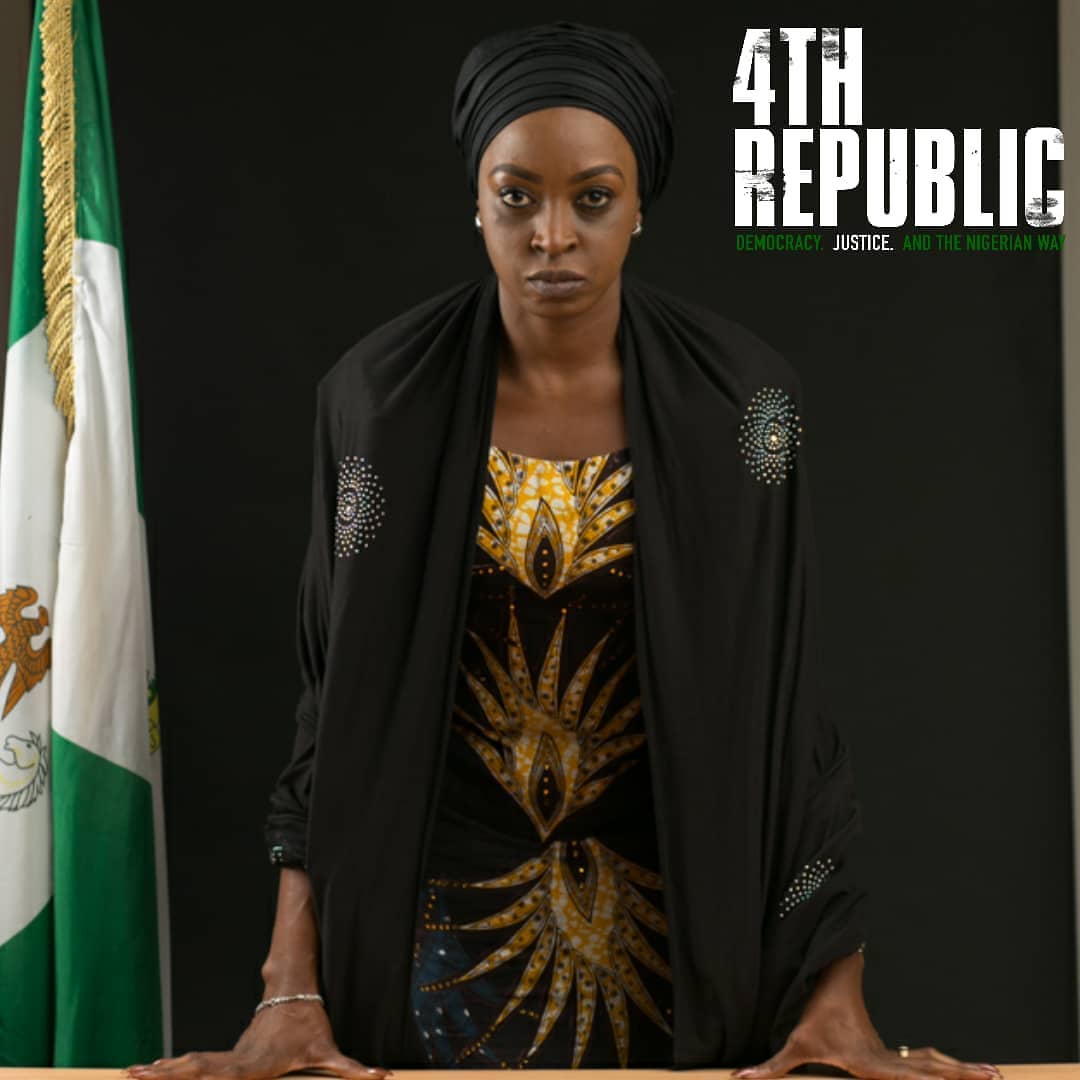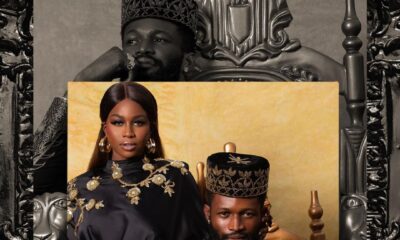Features
Oris Aigbokhaevbolo: Ishaya Bako & Kate Henshaw Deliver the Goods on 4th Republic
 The last time director Ishaya Bako was in the cinemas, he arrived on the wings of an EbonyLife production. It wasn’t very original. It wasn’t very good. But it was hardly his work.
The last time director Ishaya Bako was in the cinemas, he arrived on the wings of an EbonyLife production. It wasn’t very original. It wasn’t very good. But it was hardly his work.
That appears to have changed with the new film 4th Republic, which certainly feels less like the work of an established production outfit. This is both bad news and good news.
Bad news: 4th Republic has inferior production values. Good news: It is a much better film. That the new picture comes with quite an NGO baggage, given that it’s funded by OSIWA and the MacArthur Foundation, makes it even more deserving of praise, as it makes light of that well-meaning-but-frequently-stifling load of cash.
The scene at the film’s centre takes place at night at a voting station in Confluence State, a fictional area with the geography of Kogi State—as can be seen from shots of the human and vehicular traffic around the Seriki Noma portion of the state’s capital, Lokoja, a spot famous for its many travellers.
For those aware of Bako’s documentary chops and the political turns in Kogi, 4th Republic might seem like an opportunity for a commentary on the middle-belt state, but this film has different fish to fry. A film based on Kogi’s political history might tell the bald truth; 4th Republic tells a more incisive truth. You go in for the political thrill, you come out thinking about Nigeria and what it does to idealism.
The journey to the death of idealism begins at the aforementioned pivotal scene, where a group of armed men shoot everybody in sight, including the electoral officer and a campaign manager. Two young graduates (newcomers Sifon Okoi and Sara Ibrahim) are serving the country as NYSC members posted to help with the elections. They see what has happened; they flee, but not before, in true millennial style, one of them records the murders. At this stage, the audience has a little more information than any of the characters onscreen: The shooters do not realise they have been caught on camera; the graduates are not sure what has happened.
Although one key piece of information is withheld from almost everyone, the film’s characters and its audience learn more as the story progresses. More characters learn about the existence of the video from that night; the viewers come to learn that a woman named Mabel King (played by Kate Henshaw) is running against incumbent governor Idris Sani (Sani Mu’azu in a role he obviously relishes). Sani is despised by his people and King is liked. You can tell that King was created to emphasise the usefulness of women in Nigerian politics in the service of 4th Republic’s sponsors, but it is easy to forget that once the film gets into high gear.
Because King is more symbol than person, Henshaw doesn’t get to do much. In this way, she comes close to being like Nollywood’s other female icons: Genevieve Nnaji and Omotola Jalade-Ekeinde. Fortunately, she is a much better actress than the latter, and hasn’t quite put herself into the regal straitjacket of the former. This means she is still able to lose herself in a role even when much isn’t required. She saved Kunle Afolayan’s 2017 drama Roti and made it the best of that director’s disastrous Africa Magic set of films. Here, she appears to take the pressure off the film’s younger acts.
Okoi, the reedy male corps member, does the most with this opportunity. It would be a joy to see him get more roles.
King loses the election and decides to take the matter to court. This gives two aides, Ike (Enyinna Nwigwe) and Bukky (Linda Ejiofor), a chance to get together and mirror the whimsical romance of the corps members. They are not quite as cute as the younger pair, but they do what they can. Part of the problem is Nwigwe appears too stiff and Ejiofor a tad too comical. They prove that not all opposites should attract.
The other part of the problem is that Ike should be the film’s emotional centre. It is his journey from naiveté to enlightenment that is the film’s true story. That it doesn’t do so is down to the screenplay’s inadequate attention to his character, which is seen mostly through the lens of his low-chemistry romance. (The introduction of a subplot involving his younger brother is, however, a brilliance in terms of characterisation.)
Nonetheless, I am happy to report that that oversight doesn’t torpedo 4th Republic’s storytelling, especially at the end, which could be better but still succeeds in being the most clear-eyed of our recent films concerned with politics. To take two examples: Kemi Adetiba’s King of Boys is a more ambitious film stuck with an incredulous ending, and Power of One is much too narcissistic.
You expect an NGO-funded film to be morally simplistic, and for it to reach for an agreeable conclusion that treats its viewers like babies needing a soft denouement indistinguishable from narrative pap. But 4th Republic treats the audience as intelligent adults capable of understanding the workings of the real world. Bako and his screenwriters, Emil B. Garuba and Zainab Omaki, are saying, “Look, the world is bleak and change is a tricky thing to navigate.”
Considering the last elections, the message rings true. I left the cinema thinking 4th Republic is a rarity in Nollywood: It is an NGO film with an ending so realistic you have to wonder how the director sold the idea to his sponsors. It should be required viewing for Nigerians.



















